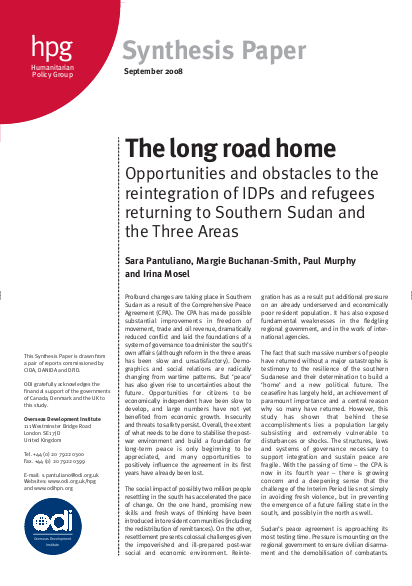
Profound changes are taking place in Southern
Sudan as a result of the Comprehensive Peace
Agreement (CPA). The CPA has made possible
substantial improvements in freedom of
movement, trade and oil revenue, dramatically
reduced conflict and laid the foundations of a
system of governance to administer the south’s
own affairs (although reform in the three areas
has been slow and unsatisfactory). Demographics
and social relations are radically
changing from wartime patterns. But ‘peace’
has also given rise to uncertainties about the
future. Opportunities for citizens to be
economically independent have been slow to
develop, and large numbers have not yet
benefited from economic growth. Insecurity
and threats to safety persist. Overall, the extent
of what needs to be done to stabilise the postwar
environment and build a foundation for
long-term peace is only beginning to be
appreciated, and many opportunities to
positively influence the agreement in its first
years have already been lost.
Resource collections
- Topics
- UN Habitat - Urban Response Collection
- Urban Response - Urban Crisis Preparedness and Risk Reduction
- Urban Response Collection - Community Engagement and Social Cohesion
- Urban Response Collection - Economic Recovery
- Urban Response Collection - Environment and Climate Change
- Urban Response Collection - Housing, Land and Property
- Urban Response Collection - Urban Crisis Response, Recovery and Reconstruction
- Urban Response Collection - Urban Resilience